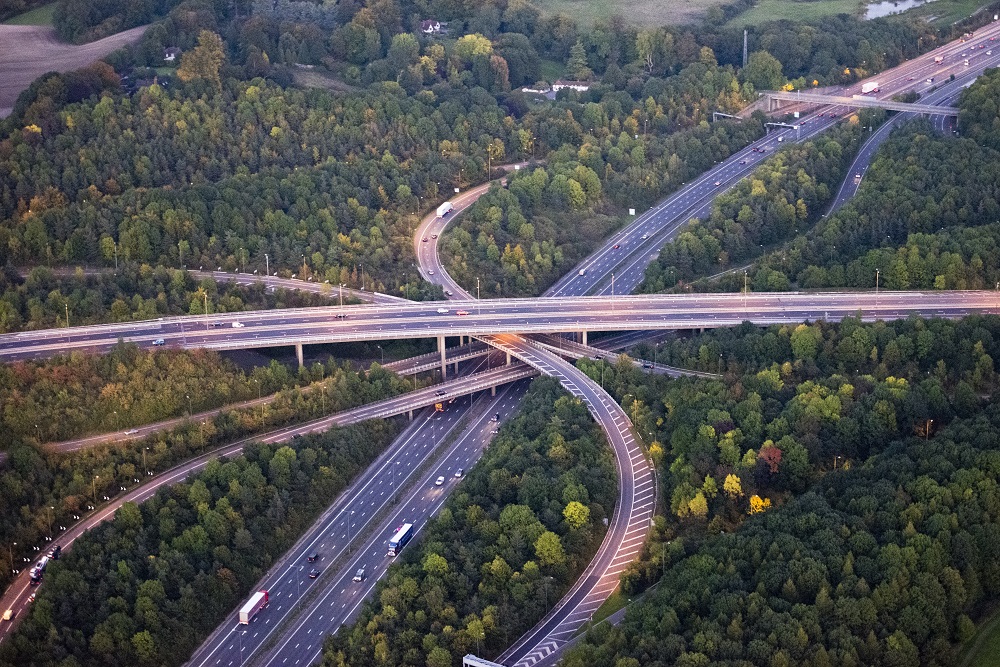POBA, Korean insurers to buy $255 mn stake in UK motorway operator
Mar 06, 2018 (Gmt+09:00)
Samsung shifts to emergency mode with 6-day work week for executives


S.Korea's LS Materials set to boost earnings ahead of IPO process


HYBE to fire NewJeans agency CEO; Min refutes accusation


Louis Vuitton, Chanel, Dior post weak profits in Korea post-pandemic


Microsoft CEO to meet with Samsung, SK Hynix, LG, SK Telecom chiefs



South Korean retirement funds and insurance companies, including the Public Officials Benefit Association (POBA), are set to buy a 20% stake in the operator of London Orbital Motorway, the M25, for ┬Ż184 million ($255 million), following┬ĀKorean institutional investors' $1 billion investment in the UKŌĆÖs key infrastructure facilities last year.
Two South Korean brokerages -- Hana Financial Investment Co. Ltd. and Hanwha Investment & Securities Co. Ltd. -- recently acquired the 20% stake in the Connect Plus consortium for ┬Ż109 million and ┬Ż75 million pounds respectively from Balfour Beatty, an infrastructure investment group.
Now the Korean brokerage houses are reselling the stake to other domestic institutional investors for expected annual returns of around 6%, according to investment banking sources on March 4.
The 20% stake in the Connect Plus consortium is part of the 25% holding sold by Balfour Beatty to funds managed by Equitix Investment Management Limited and Dalmore Capital Limited. Balfour, one of investors in the Connect Plus consortium, had owned a 40% stake before the transactions.
Both Hana Financial and Hanwha Investment bought the equity stakes in co-investment with Equitix and Dalmore.
POBA, Hyundai Marine & Fire Insurance Co. Ltd., NongHyup Life Insurance Co. Ltd., Hanwha Life Insurance Co. Ltd., Hanwha General Insurance Co. Ltd., KB Insurance Co. Ltd. and Heungkuk Fire & Marine Insurance Co. Ltd. have decided to invest in the M25 operator at their internal investment decision committees.
Lower risk coefficients applied to infrastructure assets in developed countries, the prospect of stable returns over a longer period of time and cheaper asset prices in Britain with the poundŌĆÖs decline have been attracting South Korean asset owners into BritainŌĆÖs infrastructure facilities since the Brexit decision in 2016.
ŌĆ£In calculating risk-based capital ratios, insurance companies have to apply the risk coefficient of as much as 12% for conventional equities. In comparison, the coefficient for public infrastructure facilities in a country with a high credit rating such as Britain is just 6%, or zero,ŌĆØ said a source of an insurance company participating in the M25 stake investment.
ŌĆ£The biggest advantage is that we can make relatively high returns over a longer period of time, without concerns about the RBC ratio.ŌĆØ
The M25 is a 440km motorway constructed in 1986 and one of the worldŌĆÖs biggest ring roads.
In 2009, the Connect Plus consortium signed a 30-year private finance contract with the UK Highways Agency to widen the road to eight lanes from six and maintain it.
The UK government pays fixed fees to the M25 operator regardless of traffic demand, which would guarantee annual returns in the 6% range to investors over the next 22 years, according to the sources.
Mirae Asset Global Investments Co. Ltd. and Hanwha Asset Management Co. Ltd. launched funds of funds for the investment.
Last year, the National Pension Service and other biggest South Korean institutional investors, including Hyundai Marine and the Korea Scientists and Engineers Mutual-aid Association, acquired nearly 50% stake in the UKŌĆÖs only high-speed rail line, High Speed 1, for a total of 650 billion won ($603 million).
In early 2017, South Korean institutional investors bought a 4.7% stake in the UK gas distribution networks of National Grid Plc. for ┬Ż285 million ($395 million).
South Korean institutional investors are expected to continue to pile into UK infrastructure facilities in search of public private partnership projects, supported by loosened regulations on domestic insurersŌĆÖ cross-border investments, in particular infrastructure assets.
By Chang Jae Yoo and Daehun Kim
yoocool@hankyung.com
Yeonhee Kim edited this article
-
 Pension fundsNPS loses $1.2 bn in local stocks in Q1 on weak battery shares
Pension fundsNPS loses $1.2 bn in local stocks in Q1 on weak battery sharesApr 21, 2024 (Gmt+09:00)
-

-

-
 Private equityPrivate markets open to more high-net-worth individuals: Hamilton Lane
Private equityPrivate markets open to more high-net-worth individuals: Hamilton LaneApr 16, 2024 (Gmt+09:00)
-
 InfrastructureInfrastructure secondaries continue to rise amid inflation: Stafford
InfrastructureInfrastructure secondaries continue to rise amid inflation: StaffordApr 09, 2024 (Gmt+09:00)


